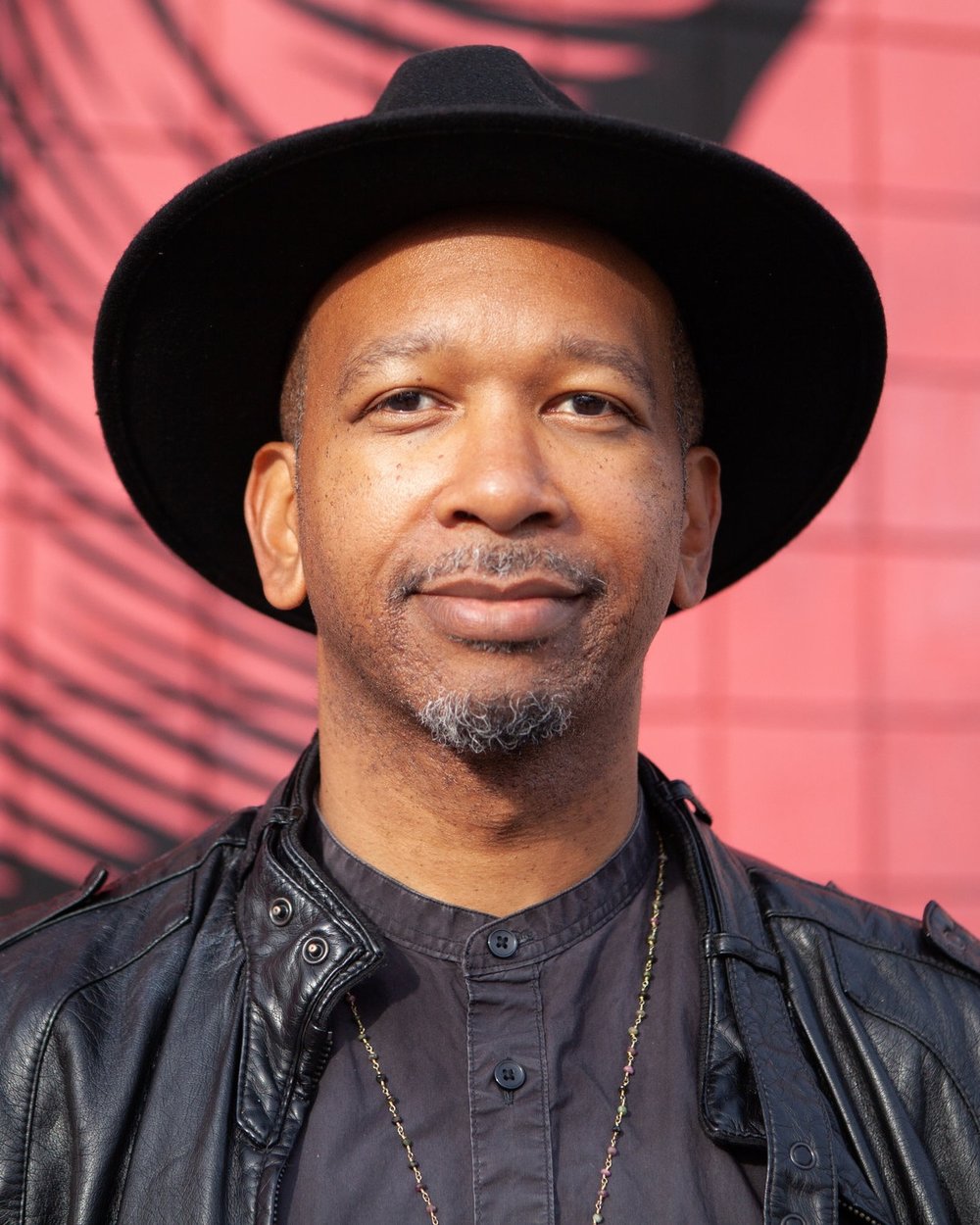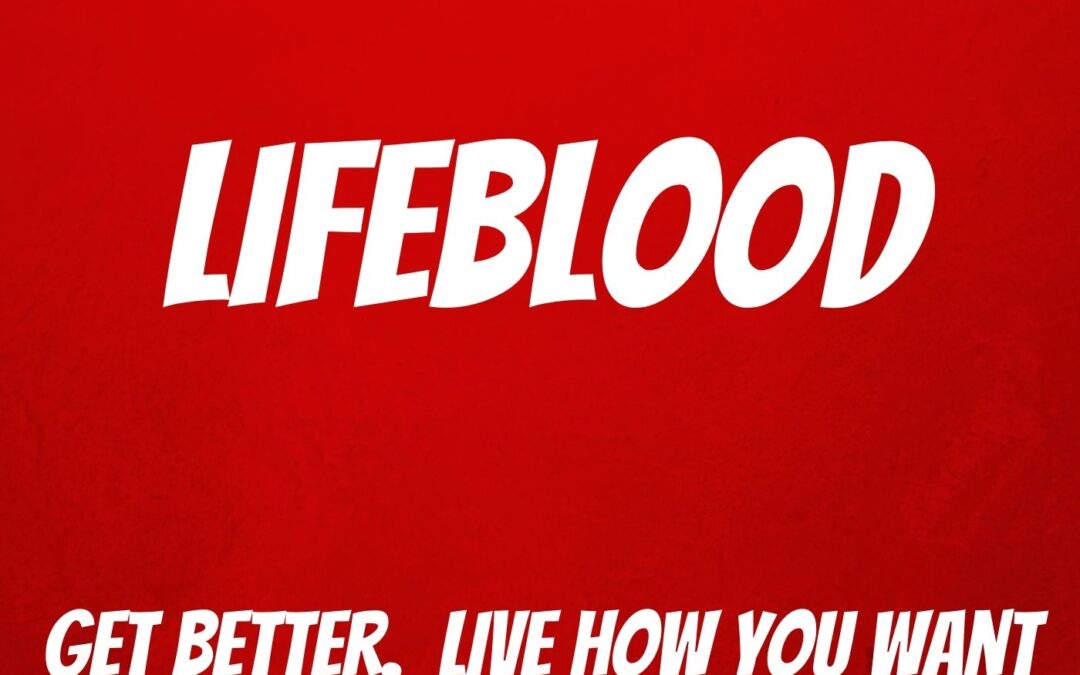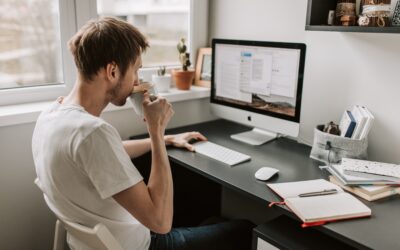Steps to Success with Marcus Bell
Do you know what you were put on this Earth to do? Marcus Bell shares his thoughts on why it’s important to figure out the answer to that question, how to do it, and what to do when you’ve done it!
Listen to us On
About the Episode
LifeBlood ENGAGE: We talked about the steps to success, being able to answer the question “what was I put on this Earth to do?” What do do once you’ve figured that out, and how to inspire others to do the same!
with Marcus “Bellringer” Bell, CEO, entrepreneur, best-selling author, music producer and creator of the 100 Dayz Challenge.
Listen to learn how to take the thing you enjoy and turn it into a daily practice that comes easily!
For the Difference Making Tip, scan ahead to 20:39!
You can learn more about Marcus at 100DayzImpactChallenge.com, BellRingerMusic.com, Twitter, Instagram and LinkedIn.
Thanks, as always for listening! If you got some value and enjoyed the show, please leave us a review wherever you listen and subscribe as well.
You can learn more about us at MoneyAlignmentAcademy.com, Twitter, LinkedIn, Instagram, Pinterest, YouTube and Facebook or you’d like to be a guest on the show, contact George at [email protected].

George Grombacher
Lifeblood Host

Marcus Bell
Guest
Episode Transcript
Come on. Marcus, are you ready?
Marcus Bell 0:14
I am ready. We are ready. Let’s do this.
george grombacher 0:19
Let’s, let’s go Welcome to life. let’s engage. This is George G. Our guest today is a strong and powerful Marcus bell. Marcus is CEO. He’s an entrepreneur, best selling author, music producer. He’s a futurist of polymath, and the creator of the 100 Days Challenge. He’s working to give people wanting to transform their lives, the tools in order to actually do it. Marcus, tell us a little about your personal life some more about your work and why you do what you do.
Marcus Bell 0:49
Yeah, well, I was born in a place in the world that they say that music must be in the water. Says great artists such as Missy Elliott forelle, Chris Brown, Ruth Brown, Jason morass, Ella Fitzgerald, they were all born in Virginia. So when I was in my mother’s womb, that music entered my system, and it manifested itself, first with me playing a piano at age two. And I remember sitting on phonebooks, and barely being able to reach the keys of the piano and, and just losing myself in the, in the tones and the percussion and the cores of that instrument. So by the time I was six, I was I was being called a musical prodigy. And so I started making money in the music industry. Then at six, that’s what I get first, you know, my first check. In the entertainment industry in it, by the time I was 12, I started my first business, a record label. And so I’ve been in the entertainment industry my entire life. And from a young age, I recognized that there was something in me called to be a contribution to bring love, joy, happiness and freedom to people when, at first I was the music and now that’s expressed not just music, but through other things I created such as the 100 days impact challenge, and and courses and, and boot camps.
george grombacher 2:34
I love it. And do you still play piano?
Marcus Bell 2:38
Absolutely. Yeah, no, no, the piano. It’s like, it’s like my first love. Right. And so, piano for me, has so many different functions. Right? So there’s, there’s a meditative function. So when I play the piano, and I, this started when I was younger, right, as a, as a musical, prodigy got one of the things that helped me to be able to gain facility and extremism that has transferred into other things like business and anything that I studied marketing or, or, you know, how to grow large audiences or create visibility in the marketplaces or, or those types of things, how to engage with people, like my ability to focus for long periods of time, I would lose myself in playing the piano, right, and just like losing myself into a book, or losing myself and into an endeavor, and later found out that’s called the flow state. And so, so piano is one of those vehicles that I used to achieve flow state and, and actually, I do a lot of study on time. So I have a friend of mine, that’s the time philosopher. And so so I’ve studied time, philosophy, time, geography, time, psychology, and music is one of those things that that transforms time. Because if you listen to a piece of music, or if you play a piece of music, you know, it’s the it’s the element that involves being present. But it can also take you into a past. Right? And music is is numbers, right? So music is math. And then music is activity. So, you know, you can basically tune at home the temple of your life’s rhythm to music is such a powerful tool. So you can change your state by using music. So if you’re intentional and some of the people For that, I coach and mentor or that are my programs, I encourage them to create playlists that are designed to impact their states. So for your listeners, one little tactic or tool that you can use his music in this way. So what is that music that puts you in a state of flow? Right? What is that music that can activate you to action? Or that represents something that you’re feeling emotionally? Right? And and I think platforms like Spotify and so forth forgotten to write when they have the moods, able to select music by moods? Well, there’s something about that, as human beings, we connect music on an emotional level. And so, so yeah, so that’s. So that’s a long answer to Yes, I still play the piano. And I write songs and I produce recording artists and and, you know, people that have TV shows and films and commercials and things that they want delivered messages that they want delivered in a marketplace. They come to me for four songs, and my company supports about 450 writers producers that are some Grammy Award winner, some Emmy Award winners, and providing music for humanity.
george grombacher 6:29
Nice. I love it. Well, I’ve, I I love music. I I wish that I had sat at the piano when I was two, or six or 30 or 40. And actually learn how to play
Marcus Bell 6:42
and forever too late.
george grombacher 6:44
No, that’s 1,000% true. If I wanted it bad enough, I would do it. So getting good at something, being able to focus on on, on on something, being able to identify that this is something that I want to do. And then actually actually doing the things that that that it takes to get there. If that’s proactive? If it is I want to learn how to play piano, or if it’s reactive, things are not going well in my life. How do you how do you think about that?
Marcus Bell 7:22
Yeah, well, I think it’s like a friend of mine, and collaborator, Dan Berger says, one of the biggest moments is that you have in your life is when you’re born. The second biggest moment you have is when you discover why you were born. And then I say that the third biggest moment is when you start taking action on the why you were born. And then that fourth biggest moment, I would assert is when you have gifted that purpose to others. And I’ve made that be a contribution to others. So I think about, you know, purpose, right? And doing life’s activity that is meaningful. And so if someone is doing something that is not meaningful to them. Right? Then to start asking questions of ourselves, right? You know, those big questions, why am I here? Those philosophical questions? Why am I here? Why? What’s my purpose? Or what how can I be a, the biggest contribution to myself and, and others, right? Not just for yourself, but for others. And, you know, there’s a lot of study around self actualization, right? You know, what is it to be a self self actualized person, and a lot of philosophers point to contribution being that pathway to self actualization. But just as this, there’s this common narrative about, you know, when you’re in an airplane, right, and something’s going wrong with the airplane, you put the mask on your face first. Right? I thought about that one day, you know why put the mask on your face first? Well, you got to put the mask on your face for because the oxygen is needed. You need the oxygen so that you can help those around you. Because if you don’t put the mask on your face first, then you know you can be gone. and not be able to be a contribution into an environment that needs your help. Right. And so a lot of times, you know, people go through life in different areas, whether that’s financially, whether they’re spiritually, whether that’s relational Lee, right? Whether that’s, you know, some some mission that they care about, and they go about it without oxygen. And so what I’ve done is, in my work, I’ve created opportunities for people to put the mask on, to put the oxygen into their system so that they could be powerful when they are in their activity of life when Well, first of all, once they’ve discovered their mission, which I have tools that help people with that discovery, but, but then also in executing that into the world, through programs like wealth and impact Bootcamp, which the 100 days with a Z impact challenge came out of, and, and all that is designed to, to really uplift humanity and, and help help people really expand themselves in the world. And it came from my life. Right? So I’m a practitioner of the things that I help people with. Right? So I’m always examining within myself, is this on purpose? Right? I love it. So the thing I like about this podcast, and what you create, it is something that is definitely in alignment with an on purpose with what I care about in the world, which you know, I see your commitment to making a difference for people. Yeah.
george grombacher 11:52
Well, I very much appreciate everything you just said. It’s, it’s interesting. I’m curious what you found, where people have the hardest time, is it? identifying is it taking action is transferring it to others? Where what’s what’s what’s oftentimes the kind of the sticking point there?
Marcus Bell 12:18
Well, the sticking points usually happen before that even starts. Right? Because, you know, we’re all born into an environment. Right? And that environment can foster and create narratives that has us blocked from even taking action. Right? So I was fortunate in that, you know, I was born in an environment that encouraged taking action on dreams, right, so my mother was a national tennis champion, she played in the US Open, and back in the 60s, Steve toured the country, one of the first African American and many whites only tennis tournaments, she traveled and play with Arthur Ashe, and so so coming, you know, and she was a civil rights activist and, and I would see her take on things right, I would see her develop specialized knowledge in different areas. So she ended up raising millions of dollars for different nonprofits, and, and so forth. So I would see her go into deep study in an area, whether that was HIV AIDS, where she was writing grants for or whether that was a Community Housing, and she would become a field expert. And so so I was in an environment where, okay, if you want to do something, or if you want to learn something, you take deliberate action and study, right. And so everyone is not brought up brought up and to that type of an environment. And we all have the opportunity to put ourselves in those environments and have created those environments with with with my work. But the biggest block that I often see, is the Am I good enough? The enough the, you know, oh, I’m too whatever, right? I’m too old, right? I’m too old to play the piano. I’m, you know, I’m, I’m too young to to start a business. I look at things like Oh, so I have a six year old daughter, for example. And, you know, when people are kids, there’s that narrative. What do you want to be when you grow up? So that’s it. That’s the worst thing you’ve done. That’s the wrong question. Right? That’s the wrong question. Because it, it presupposes that you can’t do it right now. Right? So when my daughter says, Oh, I want to be something when she grew up, you know, gymnast or I want to be a recording artist. You are that. So now what? Right? You are recording artists, you are a gymnast. Right? So So now there’s this activity to do their skills to build, they’re like that. So I see that built into our social structure. Is this not good enough yet? Right. And so, so that’s one of the first barriers is to see, okay, what actually, you can be a thing in your thinking, and then you can put that thinking into action into activity, you know, find mentors, find masters at something. So, so in the 100 days, impact challenge, there’s, there’s a impactors inner circle, so every week, I bring one, whether is this celebrity artist, whether it’s an Olympian athlete, whether it’s a minister, or someone that’s achieve a lot of success financially or in different areas of life. And one of the common things that I see across the board, with the high performers, of people that have become top of fill, is that there’s this belief, there is this belief that they can grow and expand their capacities.
And then they put that belief into action. And so, so having mentors and masters that you can interact with, which is one of the reasons why I put that inside of the 100 days with a Z impact challenge is so that people can have access to people that are masters. And, and understand that thought process and understand those deliberate practices. Understand that, you know, if you want to have something in life, whether that’s financial freedom, or whether that is a relationship that works, or whether that is, you know, moving your community from one position to another position, or your family from one position to another position, and the socio economic system, you know, that there are activities that you can do every single day towards that aim. And, and it, you know,
it’s a practice, whatever it is that you want to take one in life,
you can create a practice around it, whether that’s health practice, of meditating every single day, or, you know, eating a certain way every single day, you know, like that.
george grombacher 18:22
I love it so powerful. And I love what what you’ve built, for all the reasons that you just laid out, we we need as human beings to be able to see and interact with other human beings that just just just so we know, oh, wow, this, this is possible. Marcus has done these amazing things, but he’s just a regular person, just just like me. So I can do that too. And then to be able to have that interaction, and that community, and the structure of this is 100 days. And here’s what we’re going to be doing during this time period. And if you follow these steps, here’s the results that you can really expect and we’re going to be here to support you.
Marcus Bell 19:02
Yeah, you know, I will say this, George, that you’re an extraordinary person. Just like George, you’re an extraordinary person, just like me. See, that’s another narratives. A regular person. No, you’re not a regular person. You’re an extraordinary person. Right? And you just have to discover that for yourself. You may want to discover how extraordinary and how your extraordinary capacities your inner potential can be of help beyond you and for others. But yeah, you’re not regular. You listener are not regular. There’s something in you there’s something in you that you can do that other people can’t You may take for granted. Oh, I just do that thing, you know, whether that’s like cooking, you know, the, the most amazing cornbread or whatever, right? Right, you have a superpower inside of you. And part of your job as a human being is to discover and see and listen for, and listen to the environment that is telling you that, wow, that thing that you take for granted, that’s actually the thing that makes you extraordinary.
george grombacher 20:29
I love it. Marcus, the people are ready for your difference making tip even though you’ve given us a lot of them, what do you what do you have for them?
Marcus Bell 20:39
Yeah, so, the difference making tip is practice. Take what it is, that you care deeply about. And look at how you can turn the activity of your life towards that thing you care about into a practice that you can do every single day that you can have it be so present, that it becomes you that it becomes that it becomes who you are a part of your identity. What is a practice that you can put in place that becomes your identity. I am just someone who walks on a beach every single morning, right? I am someone who studies and reads every single day I am some one that you become that so whatever that is taking deliberate action. And, and of course, put yourself in an environment where this 100 days with a Z impact challenge though, they can go to 20 you know, 100 days with a Z 2021 or 100 days with a Z 2022 or whatever they hear this, right? They can go to that and put themselves on environment for practice like that?
george grombacher 22:14
Well, I think that is great stuff that definitely gets to come on. Come on. Powerful. I am someone who, whenever you want to do insert that there and put it into practice. Marcus, thank you so much for coming out. And where can people learn more about you? Where can they learn about the 100 Days Challenge? How can they engage?
Marcus Bell 22:35
Well, first of all, George, thanks for again for having me on. You know that there, you’re, you’re making a contribution with what you’re doing. And I see that you have a lot of episodes that you’ve done. So it tells me that you are a practitioner.
george grombacher 22:51
I am right.
Marcus Bell 22:53
So at first I want to acknowledge you about that. So the way people can reach me, right now, LinkedIn is the place where I am building audience and, and adding value. So you can find me Marcus Mar cus Bell, b e Ll on LinkedIn. You know, and you can put in bell ringer, if that helps the search algorithms. So and if you hear this and there was something meaningful in this, feel free to reach out and message to me I’ve opened up the follower aspect so people can just message me there. And if they want to engage with me on a regular basis every week, the impactors inner circle inside of the 100 days. Impact challenge is a place where that can happen. And I get on with participants and a challenge and we interact and they bring whatever it is that they’re at work one and I’m able to give input and they have an input of the community right there.
george grombacher 24:02
I love it. And did they find that through LinkedIn and you
Marcus Bell 24:07
they can find that by going to 100 days with a Z and then put whatever year it is so 2021 and we’re in 2021 right now so you can go 100 days with a Z 2020 one.com
george grombacher 24:23
Excellent. Well if you enjoyed this as much as I did show Marcus your appreciation and share today’s show with a friend who also appreciates good ideas go to where you can find Marcus on LinkedIn at Marcus, it’s ma RC u s, e Ll and then check out the 100 d a y z 2021 or 2022. Give me the website again,
Marcus Bell 24:46
or 2024 or 2020 2030.
george grombacher 24:49
I love it. So it’s a movement. It’s a movement. Is it is it number 100
Marcus Bell 24:55
or is it number? Yeah, yes. The number 100
george grombacher 25:00
Excellent, thanks good, Marcus.
Marcus Bell 25:02
All right, thank
george grombacher 25:03
you most love. And until next time, keep fighting the good fight. We’re all in this together.
More Episodes
Should We Have a Family Trust? Primary Benefits, Highlights and Questions to Ask
Looking back over the first 20 years of my career as a financial advisor and meeting with thousands of people, very few strategies or financial products were thought of as “must haves.” Wills and trusts are the closest thing to it, meaning whenever I asked if...
Personal Responsibility: How To Get More In Your Life
I recently had the pleasure of having Jamie Lerner on the LifeBlood podcast to talk about personal responsibility and how we can get more of it in our lives. You can find her episode here. Jamie shared some of the wisdom she’s learned over her career as a...
Our Favorite Quotes About Dignity and How You Can Apply Them in Your Life
Dignity is “The quality or state of being worthy, honored, or esteemed.” Wikipedia defines it as “is the right of a person to be valued and respected for their own sake, and to be treated ethically. It is of significance in morality, ethics, law and politics as...
How to Have a Greater Sense of Personal Responsibility by Taking Personal Initiative
How often do you see something and think “how is that happening?” or “why is that the way it is?” When you look at your community, is there anything you’d change? Here’s the thing; you’re the right person to make those changes. You’re the right person to...
A Family Trust: How to Get Your Estate Plan Done without Breaking the Bank
The family trust has been a powerful estate planning tool for a long time. The need for what trusts do came about in the 12th century, and family trusts have been used for a long time as well. Over a century ago, Frank Mars (candy bars) created a trust which had the...
Get Good with Money: Five Things you Can Start Doing Right Now While Still Enjoying Coffee
I love getting coffee. I mean, I really love it. Sure I love coffee itself, but there’s something about the action of going into the coffee shop, the whole experience of it I’m super into. I haven’t dug into why I like it so much, I just know that I...
Get Out of Debt by Avoiding Comparison
Teddy Roosevelt famously said, “Comparison is the thief of joy.” Another related well-known quote is, “Too many people spend money they haven't earned, to buy things they don't want, to impress people that they don't like.” It’s a very human thing to...
How to Get Financial Peace of Mind
Merriam-Webster defines peace of mind as a feeling of being safe or protected. What does having peace of mind mean to you? When I start feeling overwhelmed, stressed out, anxious, or a combination of all of them, I think about the Serenity Prayer: God, grant me the...
How to Find Your Old 401k and Roll it Over without Paying Taxes or Penalties
Old 401(k)s. Odds are, you probably have one. Maybe it’s an account at a job you had for six months and there’s $1,000 in it. Or maybe it’s from a previous career where you were at the company for 10 years and there’s a $100,000 balance. Either way,...
Join the show.
Interested in being on the show? Tell me a little bit more about you and what you’d like to talk about!














